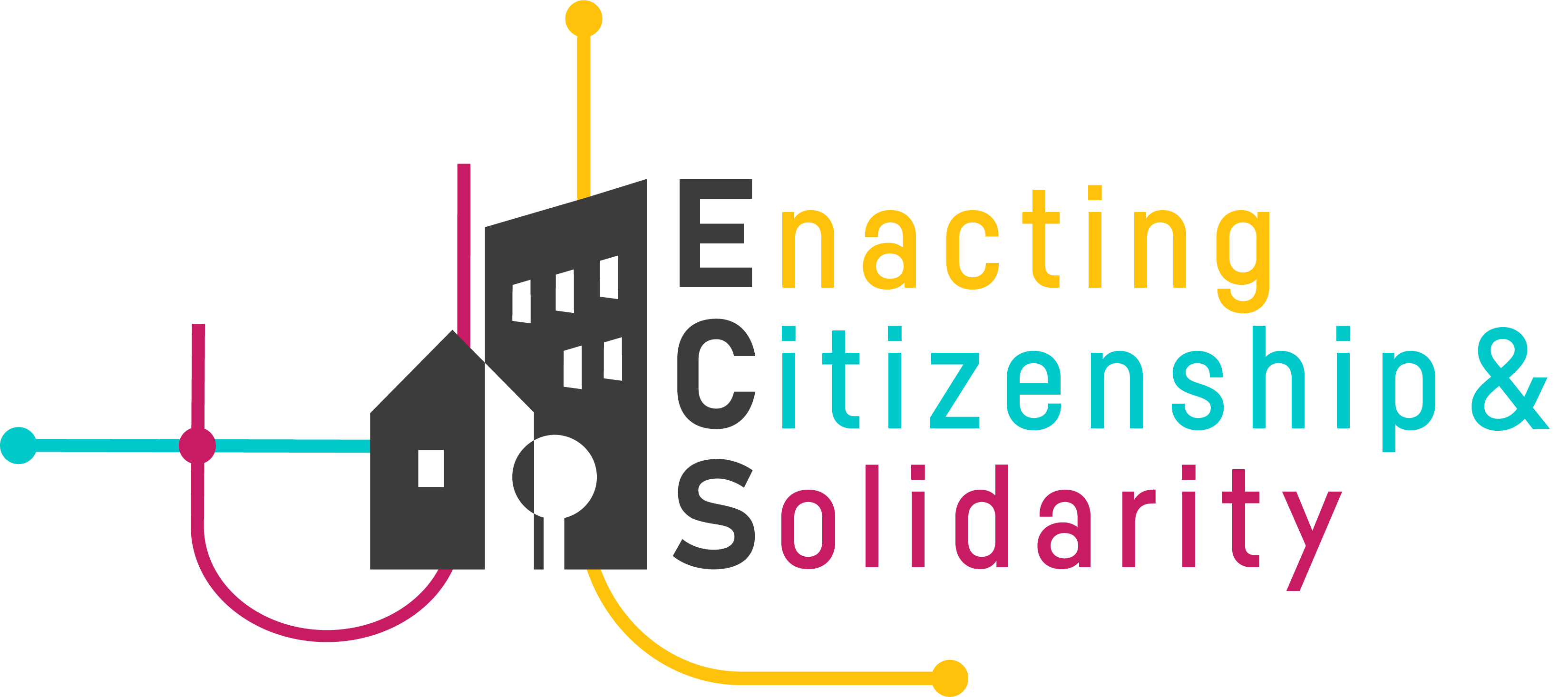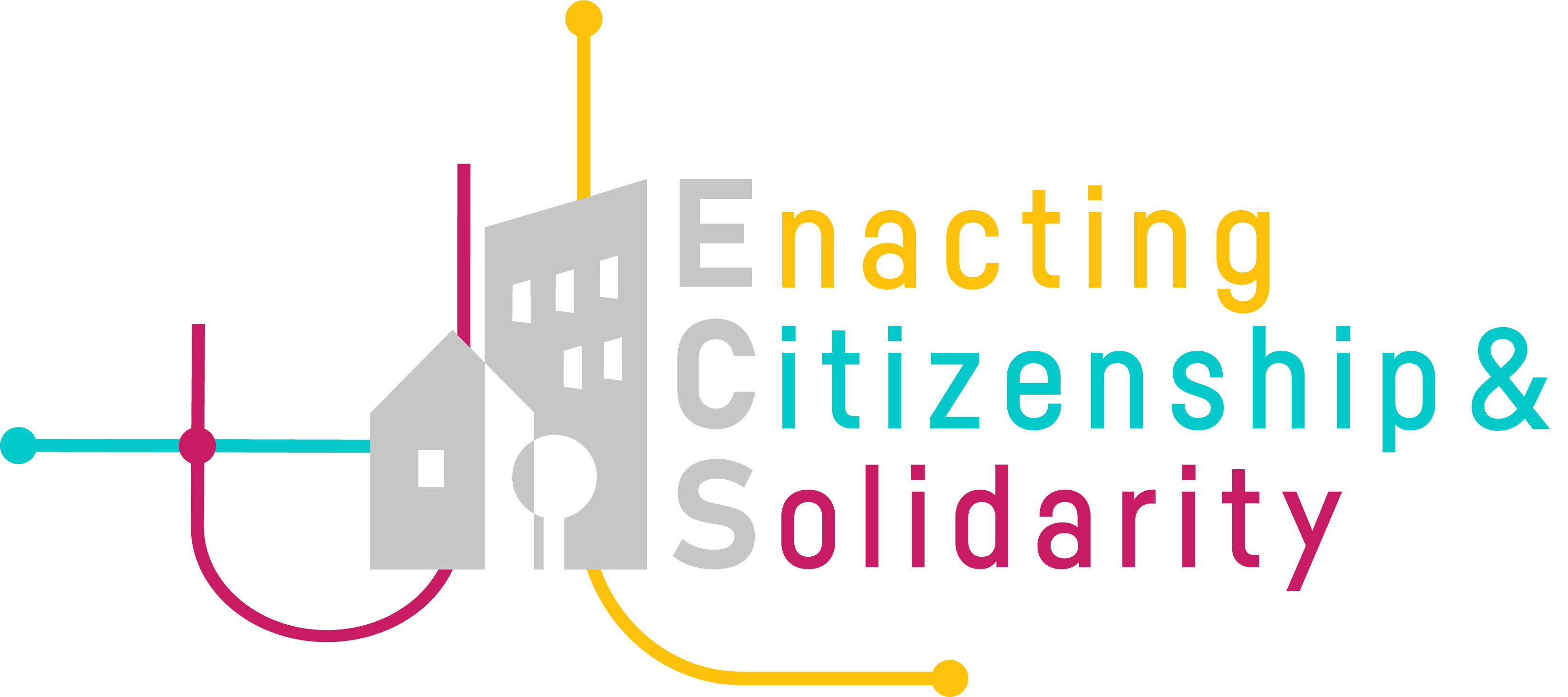News
Enacting Citizenship and Solidarity in Europe „From Below“: Local Initiatives, Intersectional Strategies, and Transnational Networks [ECSEuro]
The ECSEuro project asks how local political initiatives across Europe enact citizenship and solidarity and contribute to the vision of a more democratic Europe from below. With ten city-based case studies, we analyze initiatives in the fields of migrant rights, housing, and care work, and focus on the little-addressed challenge of developing intersectional strategies and networks beyond borders.
We are thereby dealing with the following questions: How does political activism and organizing work at city and neighborhood level? How can different social fields be linked? And how local initiatives succeed in networking with initiatives from other localities?
By triangulating qualitative methods of frame analysis, digital and global ethnography, we study local initiatives’ discursive references, online environments, and socio-spatial relations. In our theoretical work, we sharpen concepts of citizenship, solidarity, care, commons and democracy in a practice-theoretical, intersectional, and transnational perspective. Based on our research we aim at contributing to debates on urban social movements, civic engagement and municipal politics, intersectional studies, European studies, and social theory.

Research on three social fields and their intersections
We focus on the social fields of migrant rights, housing, and care work and are particularly interested in how they intersect. These fields have been deeply affected by different crises, causing fundamental challenges for Europe in the last two decades: the financial and economic crisis, the crisis of refugee politics, and the recent crisis of the Covid-19 pandemic. At the same time, these three fields all manifest innovative approaches of local political initiatives to deal with these challenges: 1) In the field of migrant rights, we see how the national exclusion of non-citizens is challenged by campaigns for the inclusion of all local residents; 2) the field of housing, there are growing contestations over affordable housing, which increasingly shape the social question at the urban scale; and 3) in the field of care work, we witness how the distribution, recognition, and democratization of care becomes an urgent issue for urban communities.
Field 1: Migrant rights
The social field of migrant rights is characterized by conflicts over mobility, immobility, and belonging, which Sandro Mezzadra and Brett Neilson (2013) describe as “border struggles” and which unfold in the context of nationalism, colonialism, and racism, as well as gender and class conflicts. We define migrant rights as related to the laws of border and citizenship regimes, but also as rights claimed in struggle, focusing on the “precarization” of legal status, conflicts over asylum, residency, and access to a state’s territory, as well as social inclusion.
Field 2: Housing
The social field of housing is characterized by conflicts over access to accommodation structured by social status and resources. Struggles over housing may therefore be addressing the social question of the 21st century (Wacquant 1996): rapidly rising rent and real-estate prices, the expulsion of low-income households from attractive residential areas, and the expansion of platforms for short-term renting – all this is an expression of current transformations in housing provision, which pose pressing challenges for local politics.
Field 3: Carework
The social field of care work is characterized by conflicts over the capitalist division between productive and reproductive spheres, with work in the latter sphere often unpaid and seen as a “labor of love.” Although care is central to the social fabric, it is undervalued or devalued in terms of rewards and status (Fraser 2016). Care work includes material activities as well as affective relations in familial, voluntary, and professional relationships. It is disproportionately done by women, migrants, and people of color and marked by intersectional power relations. Feminist scholars have analyzed a growing “crisis of care” resulting from economic and social transformations (Tronto 2013) and causing a care deficit that is partly filled by precarious migrant workers (Schilliger 2016).
This project is funded by VolkswagenStiftung within the programme „Challenges and Potentials for Europe“.





